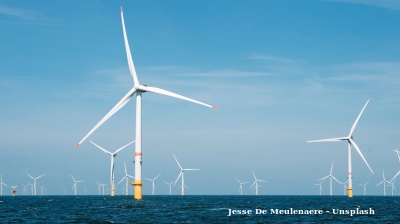Melting polar ice is slowing the Earth’s rotation, but not enough to offset an even greater acceleration caused by changes in Earth’s molten core. As a result, scientists say the planet is spinning faster overall — and for the first time in history, a second will need to be subtracted from official timekeeping.
The weight of melting water flowing from the polar ice caps to the equator is visibly slowing the earth’s rotation and adding measurable extra seconds to the length of a day, a new study found.
The melting of polar ice due to global warming has slowed Earth’s rotational acceleration enough to delay a rare timekeeping adjustment — the subtraction of a leap second — in what scientists are calling a dramatic example of how the Climate Crisis is negatively affecting the entire world, CNN reported.
A study published in Nature on March 27 found that the subtraction of a leap second, once expected in 2026, will now be delayed until 2029 — not because Earth is slowing down, but because ice melt has temporarily countered a much larger internal speeding-up effect.
“As the polar ice melts and the water shifts toward the equator, it redistributes Earth’s mass in a way that slows rotation,” said Professor Duncan Agnew, lead author of the study, told CNN. “But deep within the planet, the molten core is slowing down, and to conserve angular momentum, the outer layers — including the crust — are spinning slightly faster.”
The weight of frozen water trapped at the poles has little affect the speed of the rotation of the earth, but like a spinning ice skater lowering her arms from over her head to hold them out, the further the mass of the water is from the axis of rotation, the slower the rate of spinning becomes due to the effects of momentum as the centrifugal force pulls the water to the equator.
That is making the day longer, according to scientists. The phenomenon is slowing the Earth’s rotation, and, by extension, the Coordinated Universal Time (UTC) system used worldwide.
“Part of figuring out what is going to happen in global timekeeping … is dependent on understanding what is happening with the global warming effect,” said Agnew.
Everyone knows about leap years, an extra day every four years, needed to correct the not-quite 365 days a year rotation of the earth around the sun, but less well known are “leap seconds” that need to correct the non-quite 24 hours in a day.
The leap second adjustment is necessary to keep UTC — which is governed by atomic clocks — in sync with astronomical time, based on Earth’s rotation. Since the late 1960s, when UTC became standard, leap seconds have only been added to account for the planet’s gradual slowing due to tidal friction.
However, perversely, the movement of water to the equator and its slowing effect, is not enough to counter the acceleration of the rate of the earth's spinning caused by changes in the rotation of its molten core. The upshot is a scheduled subtraction a second from global timekeeping has to be delayed by several years. A negative leap second — subtracting a second — has never been implemented before.
“A negative leap second has never been added or tested, so the problems it could create are without precedent,” said Patrizia Tavella of the Time Department at the International Bureau of Weights and Measures in France, CNN reports.
Due to the accelerated rotation of the earth’s crust, the Earth’s overall rotation is accelerating: Scientists say the core is slowing, forcing the outer layers to rotate more quickly to compensate and conserve angular momentum. It’s the basic physic principle of: for every action there is an equal and opposite reaction.
The implications of the change in time are significant as changing the time in computers will be as difficult as the Y2K problem at the turn of the century – counting time is hardwired into the core of computers so subtracting even one second to all the computers in the world poses a formidable technological problem. While current computing systems can handle the addition of a second, most are not equipped to subtract one, reports CNN. The risk of errors in systems that rely on ultra-precise timekeeping — such as high frequency stock trading that do thousands of transactions a second and rely on being infinitesimally faster than their competition — is going to be substantial.
“Nobody really anticipated that the Earth would speed up to the point where we might have to remove a leap second,” Agnew added. “Being able to say so much ice has melted that it’s actually changed the rotation of the Earth by a measurable amount — I think gives you the sense, OK, this is a big deal.”
bneGREEN

The Arctic and Antarctica record "off the charts" heat as polar warming accelerates
Parts of both the Arctic and Antarctic have experienced historically high temperatures in recent weeks, with weather stations in East Antarctica recording record-breaking warmth for the month of October, alarming climate scientists.

Giant glacier chunk breaks away in Tajikistan, mountain villages put on alert
Situation serves as reminder that climate crisis threatens to wreak havoc in Central Asian country.

Singapore’s green pivot – headline grabbing but still limited
Forays into offshore wind via regional cooperation with neighbours, and forward-looking bets on hydrogen and low-carbon fuels are making headlines, but the scale required to wean a heavily gas-dependent system off fossil fuels is still daunting.

North Macedonia's Skopje tackles mounting waste and rodent crisis
Locals say the problems in Skopje's Centar municipality worsened during the local election period when political campaigning took precedence over maintenance.




